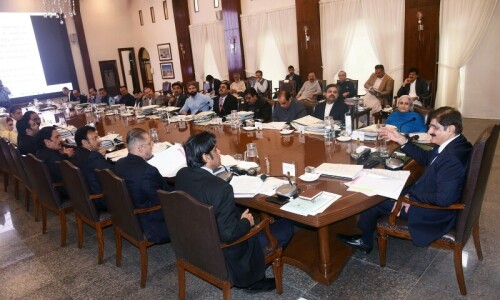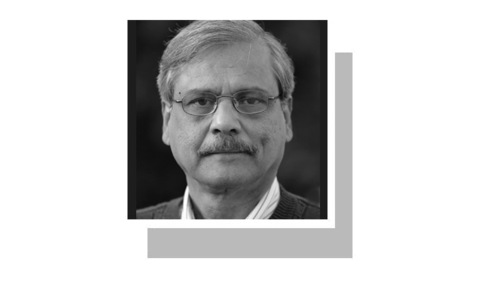WASHINGTON: The joint US-India statement has not only urged Pakistan to take ’immediate action“ against all terrorist groups, but also left open the option of asking the Financial Action Task Force (FATF) to further tighten its anti-money-laundering and terrorism financing standards.
The statement, issued after a White House meeting between President Joe Biden and Indian Prime Minister Narendra Modi on Thursday, said the two leaders “called upon the FATF to undertake further work identifying how to improve global implementation of its standards to combat money laundering and the financing of terrorism.”
Uzair Younus, a South Asian scholar with the Atlantic Council, Washington, said this should be a cause of concern for Pakistan because “there’s evidence that when pushed on the FATF side, Pakistan does comply with specific demands like this.”
He referred to the Sajid Mir case, adding that in the fall of 2021, “Sajid Mir was brought back from the dead” when Pakistan faced similar pressures.
Opens up possibility of Indian-influenced ‘designations’ to press Islamabad into action
Mir was on the FBI’s list of most-wanted terrorists, and was wanted by both the US and India over the Mumbai attacks. Although it was initially claimed that he was dead, he was arrested by Pakistani security agencies in 2022 and subsequently convicted.
The statement also underlines the cooperation between the US and Indian governments on “counterterrorism designations and homeland security cooperation,” including in intelligence sharing and law enforcement cooperation.
This gives them the option of joint designations, further increasing pressure on Pakistan to go after those declared terrorists by the Indian government.
The statement “called on Pakistan to take immediate action to ensure that no territory under its control is used for launching terrorist attacks” and called for “the perpetrators of the 26/11 Mumbai and Pathankot attacks to be brought to justice.”
At their White House meeting, Biden, and Modi reiterated the call for concerted action against all UN-listed terrorist groups including Al-Qaeda, the so-called Islamic State (IS), Lashkar-e-Taiba (LeT), Jaish-e-Mohammad (JeM), and Hizb-ul-Mujhahideen.
“This means that the US is now aligning itself with India to push Pakistan to take verifiable actions against groups that in the past have received sanctuary or patronage,” said Shuja Nawaz, a Pakistani-American scholar.
“Significant that nothing is said about Indian repression in Kashmir or Manipur or curtailing Gandhi from parliament,” he noted.
Mr Younus, however, pointed out that the message from the US “has been loud and clear for a while: act against terrorists that have found a safe haven on Pakistani soil, especially those linked to LeT and responsible for terror attacks in Mumbai and Pathankot.”
Asked why Washington was supporting an Indian demand, he said: “The US has a long history of supporting this demand, and for valid reasons as US citizens also died there.”
The joint statement stressed that the United States and India “stand together to counter global terrorism and unequivocally condemn terrorism and violent extremism in all its forms and manifestations.”
The two leaders strongly condemned cross-border terrorism, the use of terrorist proxies and “they noted with concern the increasing global use of unmanned aerial vehicles (UAVs), drones and information and communication technologies for terrorist purposes and reaffirmed the importance of working together to combat such misuse.”
Published in Dawn, June 24th, 2023
















































